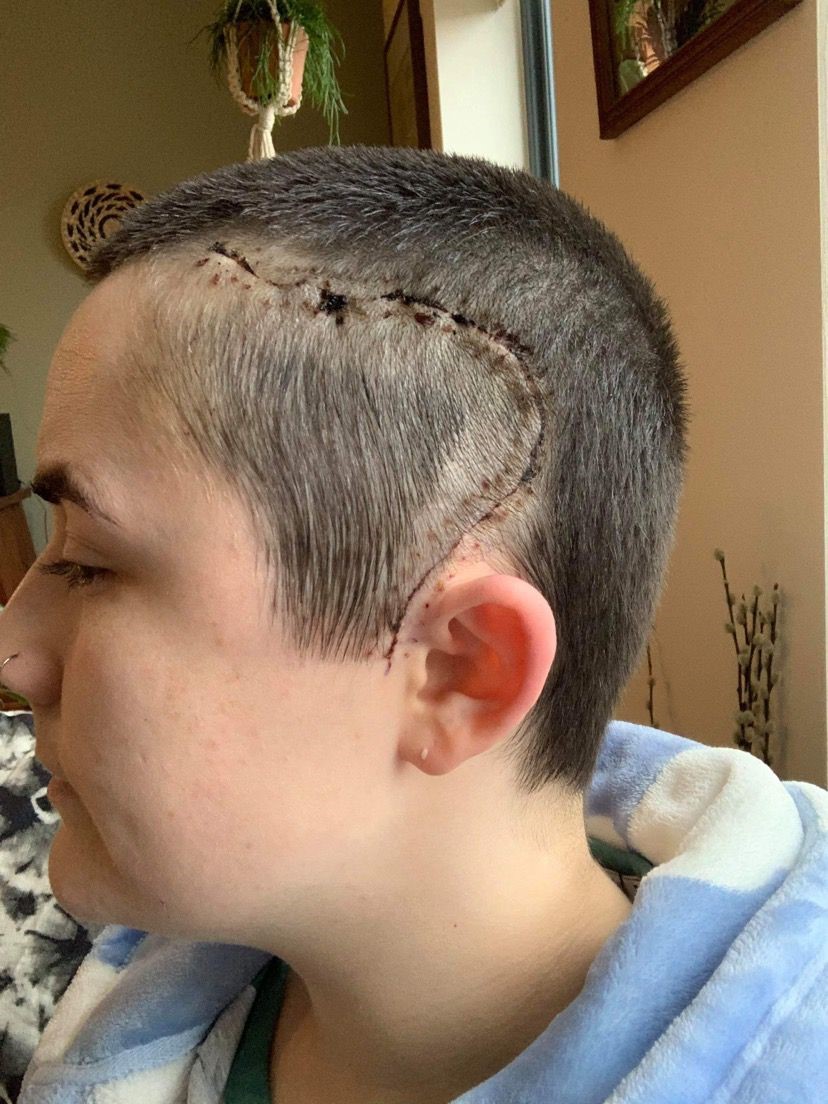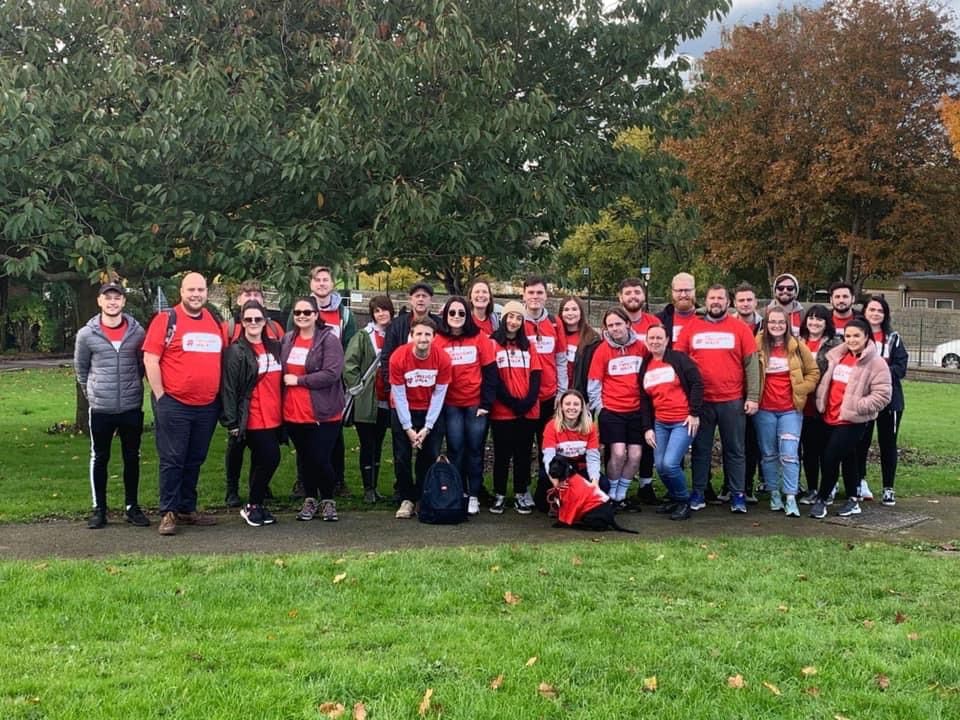Before Mia’s glioblastoma diagnosis she experienced vertigo, migraines and tinnitus.
Initially, the doctors thought that the tumor could be a possible low-grade glioma. It was showing no signs of growth and Mia was offered “watch and wait” treatment. She had an MRI scan every six months.
Two and a half years later, doctors told her that the tumour had grown rapidly. So she underwent a craniotomy to remove it.
Mia said: “I really struggle to cope with the unknown. So despite my diagnosis being as bad as a brain tumour diagnosis could be, I felt immediately relieved. That relief quickly went, though. I was told at 24 years old that I am terminally ill and given a prognosis. There’s no good way to cope with that. I kind of zoned out after hearing the word ‘cancer’.“
Treatment

Several weeks of chemotherapy and radiotherapy treatment followed, at Weston Park Hospital in Sheffield. Although she was relieved not to experience nausea or seizures, the treatment brought with it extreme fatigue and other side effects, including hair loss.
Mia said: “I was informed the chemotherapy was so strong that it left me with a very low immune system. So I had to isolate when I was taking it. I would occasionally get some fresh air by standing on my balcony but I didn’t leave the house. I was admitted into hospital twice due to the effect it had on me, so my dosage was altered. Overall, the treatment makes you feel quite lonely.
“Despite the incredible support I had from the neuro-oncology nurses, my oncologist, Young Lives vs Cancer social worker, neurotherapist, my family, friends and my wonderful husband, I knew that, thankfully, none of them could relate to how I was feeling.“
After diagnosis
Reflecting on life since her diagnosis, Mia said: “Since my diagnosis, I reluctantly left my job working for a housing charity that was very close to my heart. Despite how incredibly supportive they were, I couldn’t accept the guilt I was feeling for taking time off due to my health. I haven’t recovered from my treatment yet, so I’m not fit enough to work.
“My diagnosis has brought me much closer to my family and friends. I value the time I spend with them a lot. And appreciate how supportive they are of me, despite how upsetting this has been for them too.“

We need more glioblastoma research
Mia said: “Research into glioblastoma is vitally important. It is the most aggressive form of cancer and doesn’t receive the amount of funding that it should. When I was diagnosed, my oncologist let me know that the amount of testing that was done on my tumour after surgery saved my life as just six months before that, the testing they did was not available; my diagnosis would have been completely different, meaning my treatment would have been too.”
Our glioblastoma research
The Brain Tumour Charity funds pioneering research into brain tumours. This year’s six Future Leaders are talented scientists and clinicians who have been awarded a total of over £1.3m for their innovative research projects that aim to improve our understanding of brain tumours and develop new treatments. Ola Rominiyi’s research focusses on glioblastoma, the most aggressive brain tumour and the same tumour type Mia has been diagnosed with.

Dr. Ola Rominiyi
Based in the UK at the University of Sheffield, Dr. Rominiyi is researching DNA repair in glioblastoma on a cellular level to identify treatment weaknesses. His work aims to create new treatment strategies with DNA repair inhibitor drugs that are more effective and have fewer side effects.
